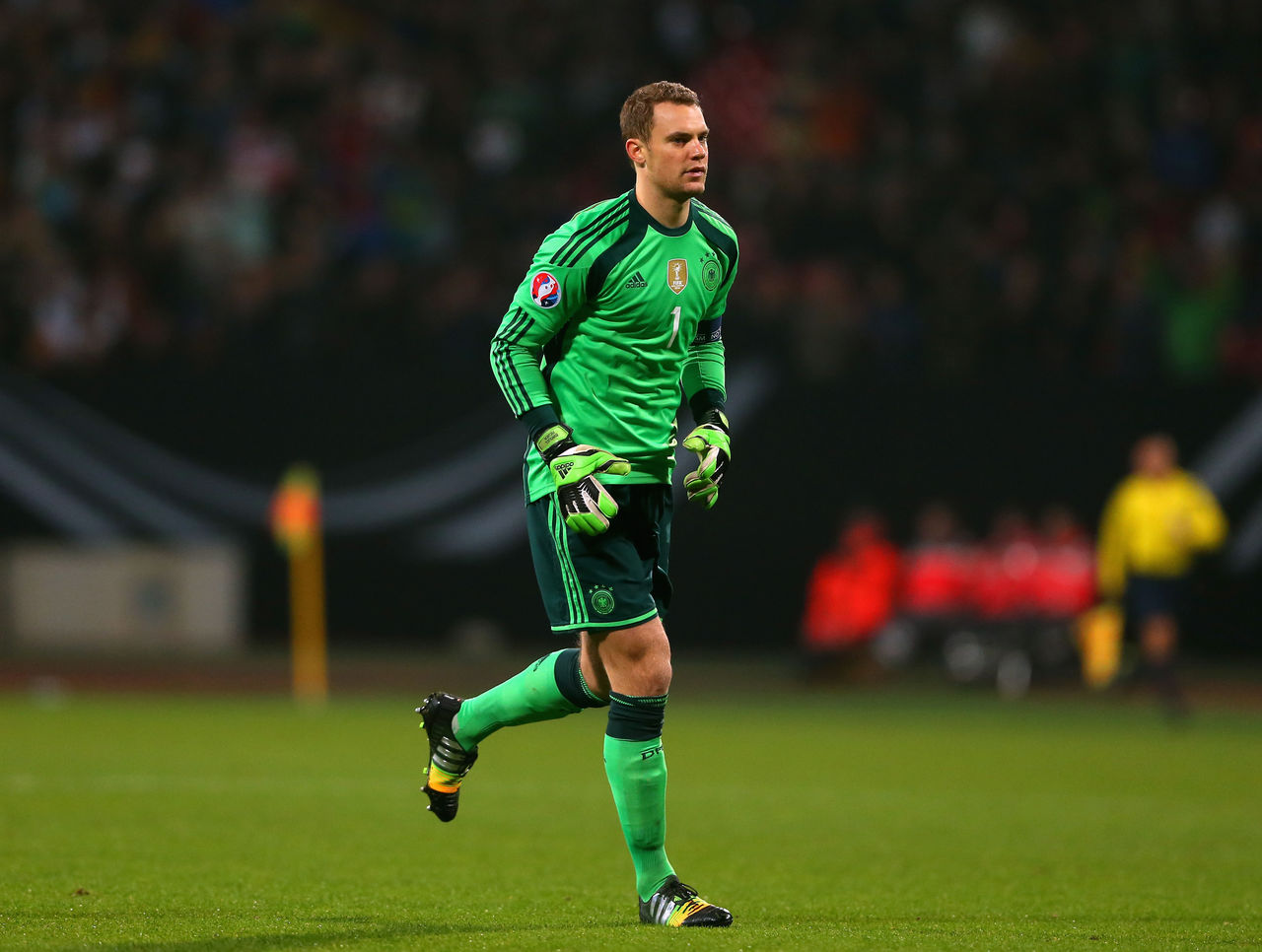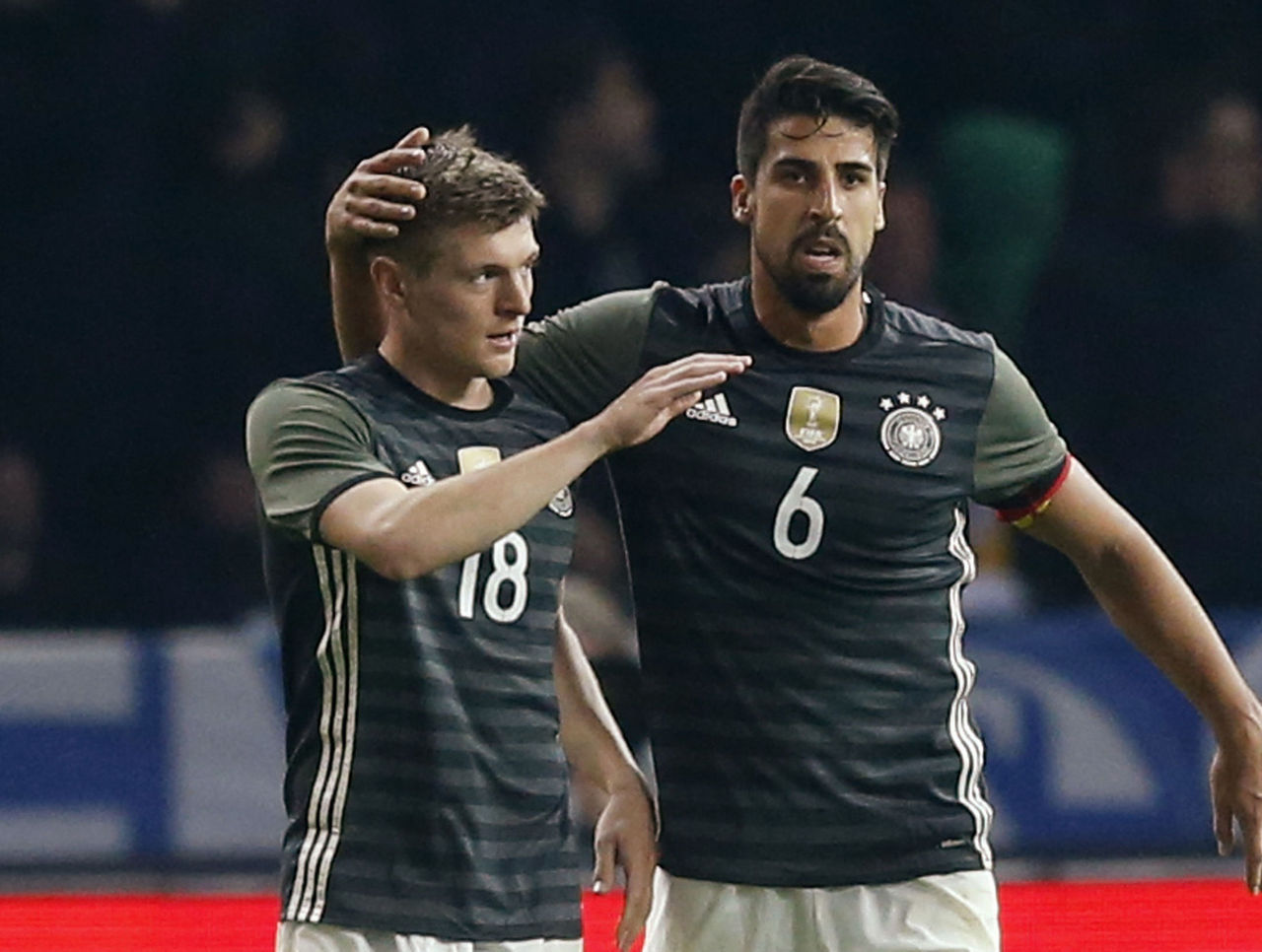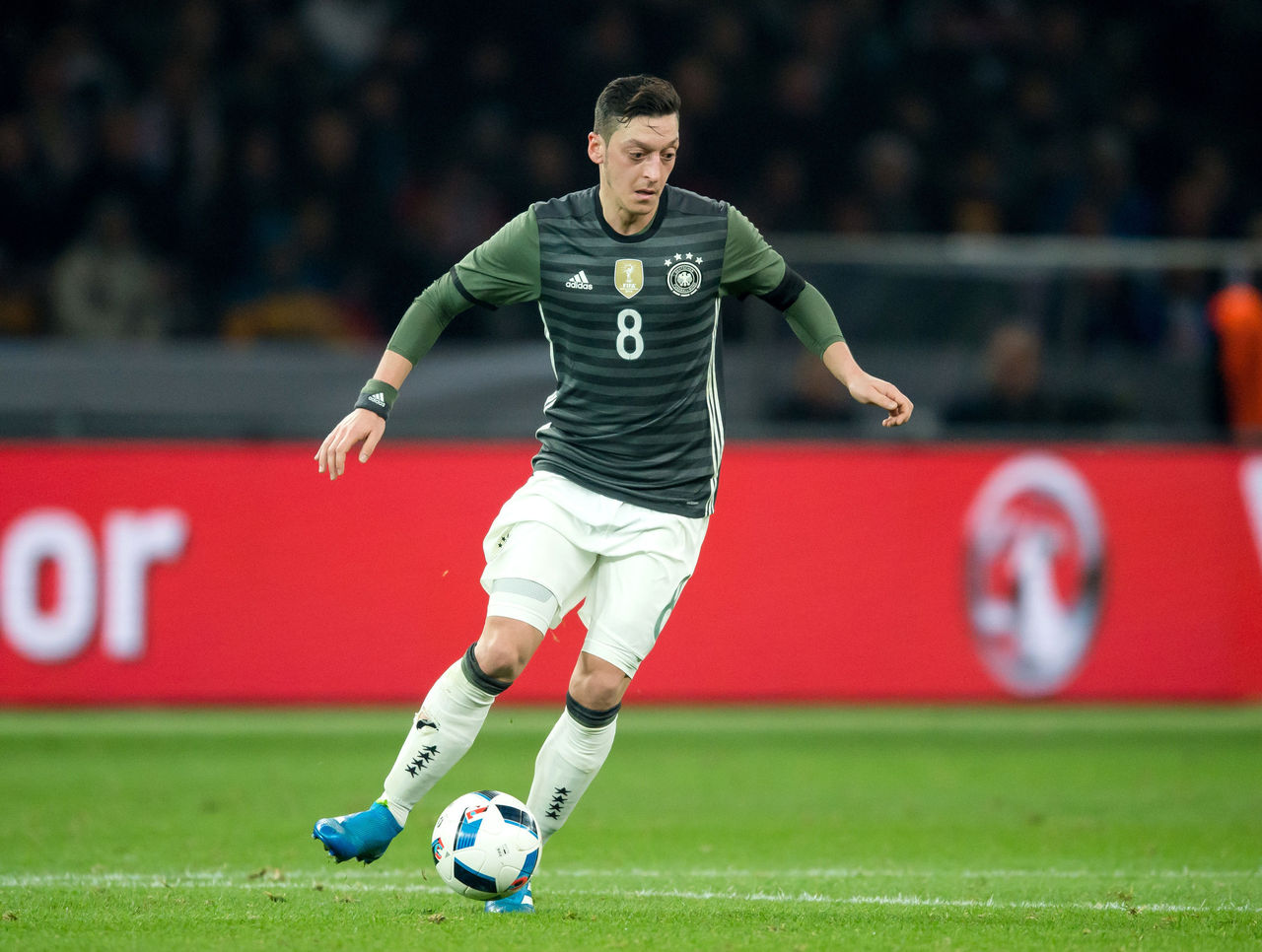Predicting the XI: How Germany should line up at Euro 2016
With Euro 2016 fast approaching, theScore is taking a fine-tooth comb to a handful of marquee squads, offering our humble opinion on who should make up the starting XI for Germany, France, Spain, England, Belgium, and Italy - the six favourites to hoist the trophy this summer. Who starts, who sits, who gets left home, and, most importantly, why.
Here we examine the options at the disposal of Germany boss Joachim Low.
theScore's starting XI

The German national team has an embarrassment of riches thanks to the nation's seemingly endless pool of talent at multiple positions. Yet, it's finding the most potent blend of talent that will pose the biggest challenge to Low ahead of this summer's competition.
Manuel Neuer

Much like the level of assuredness that Italy enjoys with Gianluigi Buffon, there's no doubt Germany is set between the pipes with Manuel Neuer following the years success he's enjoyed with the defending World Cup champions.
The reliable 30-year-old is about as established as one can be at the position, with his unconventional tactics, distribution, and fearless nature giving Germany a fist-class talent capable of snuffing out the world's best attacks.
Erik Durm
The supply chain in Germany is one only few nations can match, with Erik Durm proving to be one of the latest youth products to break into the starting team.
While he failed to see any action during the World Cup, where he was a surprise addition to Low's side, Durm, 23, figures to play a much more significant role in France. The disciplined full-back (two yellow cards in 37 appearances with Borussia Dortmund) looks to have finally overcome a series of injuries that derailed his Bundesliga campaign. He's the leading candidate at left-back.
Jerome Boateng
Injuries are about the only obstacle that will prevent Jerome Boateng from resuming his role in the heart of the German backline alongside World Cup-winning partner Mats Hummels. Patience and composure are trademarks of Boateng's game, but it's his distribution that makes the big centre-back a threat for opposing teams. His ability to pick out the right outlet pass often leads to an advantage for Germany's supremely talented attack.
Mats Hummels

Perhaps more impressive than his passing ability is Hummels' intimidating presence without the need to be physical and risk fouling his opponents. It's a trait the 27-year-old has developed throughout successful careers with Borussia Dortmund and the national team.
His partnership with Boateng should prove, once again, to be a defensive combination capable of stifling Europe's top attacking units, and possibly help Germany become just the third country to hoist the European Championship following a World Cup triumph.
Matthias Ginter
Although Matthias Ginter has shown his ability to cover multiple positions, the diverse 21-year-old could be tasked with the right-back duties this summer. His approach and vision go beyond his years, as Ginter looks well on course to becoming a regular fixture in the German national team.
Sami Khedira
Sami Khedira will provide the physical obstacle for surging attacks. He plays the ying to Toni Kroos' yang when it comes to two contrasting playing styles. The Juventus midfielder, however, is more than capable of replicating his partner's skills with the ball, but, because of Germany's options up the middle, Khedira will likely be asked to abandon his favored style for a more physical, defense-minded approach.
Toni Kroos

The bridge from the defence to Germany's attack will go through Kroos, whose otherworldly distribution should make for a smooth transition as the defending world champions advance into the opponent's end.
Whether it's finding a way out of tight spaces or launching crosses that meet his teammates' feet with pinpoint precision, Kroos has a flair for making difficult passes look easy. He plays the game with an ease so few others can replicate.
Marco Reus
It feels like the entire football world is rooting for Marco Reus to remain healthy in the final month of the Bundesliga campaign in order to see the talented playmaker on the international stage following his absence during the World Cup.
Widely regarded as one of the brightest stars in a German squad loaded with talent, Reus' presence in the buildup play and attack has the ability to turn an already intimidating German outfit into one of the most dominant nations.
Mario Gotze
Extended periods on Bayern Munich's bench shouldn't impact Mario Gotze's stock heading into the Euros. Despite his struggles to impress Pep Guardiola in Munich, Low has already insisted that Gotze, who scored the World Cup-winning goal in Brazil during the final against Argentina, will be included in the squad traveling to France in June.
"You will be rewarded for supporting Gotze. He can do things others can't do," Low told reporters before the latest international break.
Whether he wins a place in the starting team, however, could dominate headlines in Germany in the days and weeks leading up to the marquee event.
Mesut Ozil

A period of doubt over his form appears to be behind Mesut Ozil. His distribution at Arsenal - where he's close to matching the Premier League assists record (20) after setting up his teammates 18 times - has once again elevated Ozil into one of the world's top playmakers.
He won't be short of options by the time Germany kicks off thanks to the plethora of talent in Germany's midfield and attacking units. Germany's interchangeable pieces should lead to some mouthwatering football.
Thomas Muller
Germany shouldn't have any trouble finding the back of the net as long as Thomas Muller is lurking around the box. His uncanny knack for finding space in the final third creates havoc for defenders attempting to keep an eye on Germany's most lethal finisher.
What makes Muller even more dangerous is his intelligence and competence in positions outside the traditional striker's role. Whether he's on the wing or up the middle, even the world's best defences have yet to come up with an answer for how to contain Muller, who is well on his way to becoming a legend on both the club and international levels.
Substitutes
The thought that a nation could field two competitive teams has never been truer than it is with this German squad. While some teams struggle to fill each position with elite talent, one of the biggest challenges for Low is deciding which star to leave out of the first team.
Goalkeepers: Marc-Andre ter Stegen (Barcelona), Kevin Trapp (Paris Saint-Germain)
Defenders: Shkodran Mustafi (Valencia), Jonathan Tah (Bayer Leverkusen), Antonio Rudiger (Stuttgart), Emre Can (Liverpool)
Midfielders: Julian Draxler (Wolfsburg), Ilkay Gundogan (Borussia Dortmund), Andre Schurrle (Wolfsburg), Max Kruse (Wolfsburg)
Forwards: Karim Bellarabi (Bayer Leverkusen), Kevin Volland (Hoffenheim)
Left Home
Again, the endless German supply chain just doesn't seem fair. Hypothetically speaking, it's not insane to picture a scenario where three different German squads make it out of the group stage. But, silly old rules prevent such scenarios. Here are the players who will have to watch from home this summer.
Goalkeepers: Bernd Leno (Bayer Leverkusen), Ron-Robert Zieler (Hanover)
Defenders: Benedikt Howedes (FC Schalke), Per Mertesacker (Arsenal), Holger Badstuber (Bayer Munich)
Midfielders: Christoph Kramer (Bayer Leverkusen), Leroy Sane (FC Schalke), Bastian Schweinsteiger (Manchester United)
Forwards: Lukas Podolski (Galatasaray), Mario Gomez (Fiorentina/Besiktas)
HEADLINES
- Pochettino: Pulisic can't pick and choose which games he plays
- Pulisic: Ex-U.S. players questioning my commitment are 'way out of line'
- Pochettino accepts responsibility after another concerning USMNT defeat
- USMNT crushed by Switzerland for 4th consecutive loss
- Kane urges England not to panic but admits 'aggressive nature' is gone